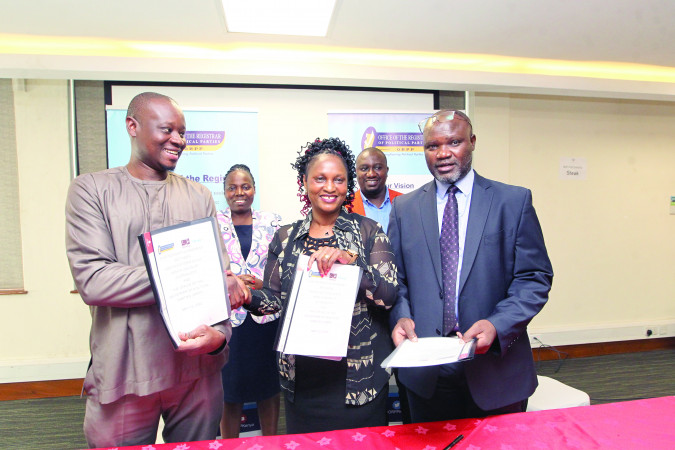KMSWG tells media to defy State ban on live Gen Z protest coverage

The Kenya Media Sector Working Group (KMSWG), a powerful coalition of media organisations, has issued a joint statement calling on media houses across the country to defy the government’s directive to suspend live coverage of the ongoing Gen Z-led protests.
The strongly worded statement, released Wednesday, June 25, 2025, is aimed at the Communications Authority of Kenya (CA), accusing it of operating outside its legal mandate and flouting the Constitution, judicial orders, and press freedom protections.
“We, the undersigned members of the Kenya Media Sector Working Group, are perturbed by the consistent violation of the Constitution and court decisions by the Communications Authority,” read the statement.
In a directive referenced as Ref. CA/CE/BC/TV 90A, the CA ordered all television and radio broadcasters to halt live transmission of the youth-led demonstrations gripping major cities across Kenya. However, according to the KMSWG, the directive is not only unlawful—it is unconstitutional.
“In a clear breach of Article 34 of the Constitution and a recent High Court judgment safeguarding media independence, the CA has issued a directive ordering all television and radio stations to suspend live coverage of the ongoing protests in the country,” the group noted.
The coalition reminded the CA that a High Court ruling had already determined that the Authority has no mandate to regulate broadcast content, a role exclusively reserved for the Media Council of Kenya.
“The Communication Authority lacks the mandate to regulate broadcast content. This authority has been constitutionally vested in the Media Council of Kenya,” the statement affirmed.
The group also warned of the wider implications of the directive, saying it could destabilize the practice of responsible journalism.
“The notice by CA not only threatens the sustainability of responsible journalism but also risks eroding the media’s ability to fulfil its duty to society,” they added.

Cover protests?
In a bold move, KMSWG urged all media houses to continue their programming and reject what it described as an “outdated and unproductive” decision.
“We are calling upon all media houses to defy this directive and continue with their normal programming without fear. We are a country that is governed by the rule of law,” they asserted.
The group further condemned the reported shooting of NTV journalist Ruth Sarmwei, who was hit by a rubber bullet while covering the protests.
“Such acts of violence against members of the press are unacceptable and undermine the freedoms guaranteed by the Constitution,” read the statement.
They called on security agencies to “exercise utmost restraint and respect the rights of peaceful protesters and journalists alike.”
KMSWG also raised concern over the potential disruption of internet services—another tactic allegedly considered by authorities.
“Any attempt to disrupt or suspend internet services undermines these rights and contravenes the rule of law,” the statement read, citing Articles 33 and 35 of the Constitution, which protect freedom of expression and access to information.
The group reaffirmed that peaceful assembly, as guaranteed under Article 37 of the Constitution, is not only a Kenyan right but also protected under international law.
“This right is not only a domestic guarantee but also affirmed by international instruments such as the African Charter on Human and Peoples’ Rights and the International Covenant on Civil and Political Rights,” they emphasised.
The statement was signed by 14 key organisations, including the Kenya Union of Journalists, Kenya Editors Guild, Article 19 Eastern Africa, and the Association of Media Women in Kenya, among others.
“As professional journalists, we believe switching off the media is not a solution to what the country is facing. These are outdated and unproductive decisions that can only aggravate the matter,” the coalition asserted.














